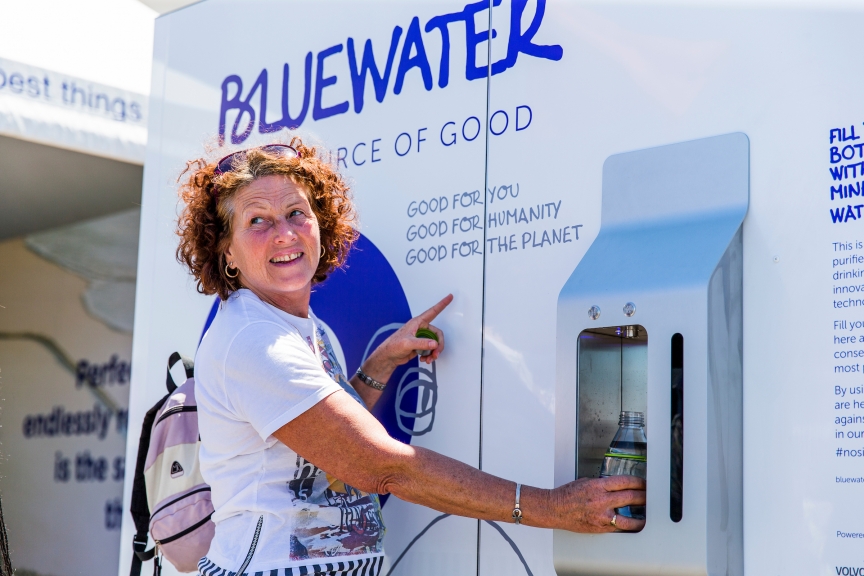Bluewater leading charge against single-use plastic bottles

Race Partner announces pioneering launch of machine into UK supermarketText by Jonno Turner
In the time it takes you to read this sentence, experts estimate that we will have purchased over 150,000 single-use plastic bottles around the planet.
With over 1 million single-use bottles changing hands globally every minute, much of the plastic degrades into microplastic and ends up in our oceans and food chain.
But Race Partner and Official Drinking Water Provider Bluewater is helping supermarket customers take up the battle against single-use plastic bottles with the global launch of its first in-store water dispensing station and range of re-usable bottles.
The pioneering project – first launched in a London supermarket recently – means that customers can access water served still or sparkling direct from the Bluewater station rather than buying a single-use plastic bottle from the shelf.
In 2017-18 edition, Bluewater machines in the heart of every Race Village enabled the Race to avoid over 388,000 single-use plastic bottles – with visitors filling up their re-usable bottles on six continents.

The water is purified to remove contaminants such as lead, medical residues, pesticides, chemicals and micro-plastics and then re-mineralised to add trace minerals such as calcium and magnesium.
"Around 525 billion plastic bottles are sold every year – and most are not recycled, instead ending up in landfill or our oceans to ultimately break down into microplastics and end up in our food and water chain," said Bluewater founder Bengt Rittri.
Customers can bring along their own refillable bottles to collect the water, or buy a durable high-quality Bluewater stainless steel bottle, which, unlike their plastic counterparts, can be refilled time and again to help protect marine, human and other planet life.

The Ocean Race Sustainability Programme – created in partnership with 11th Hour Racing – includes a series of The Ocean Race Summits around the world, a Learning Programme available in seven languages and being studied by kids in 42 countries and a groundbreaking Science initiative that sees sailors gather never-before-seen microplastics data from the world's most remote spots to help scientists better understand our oceans.